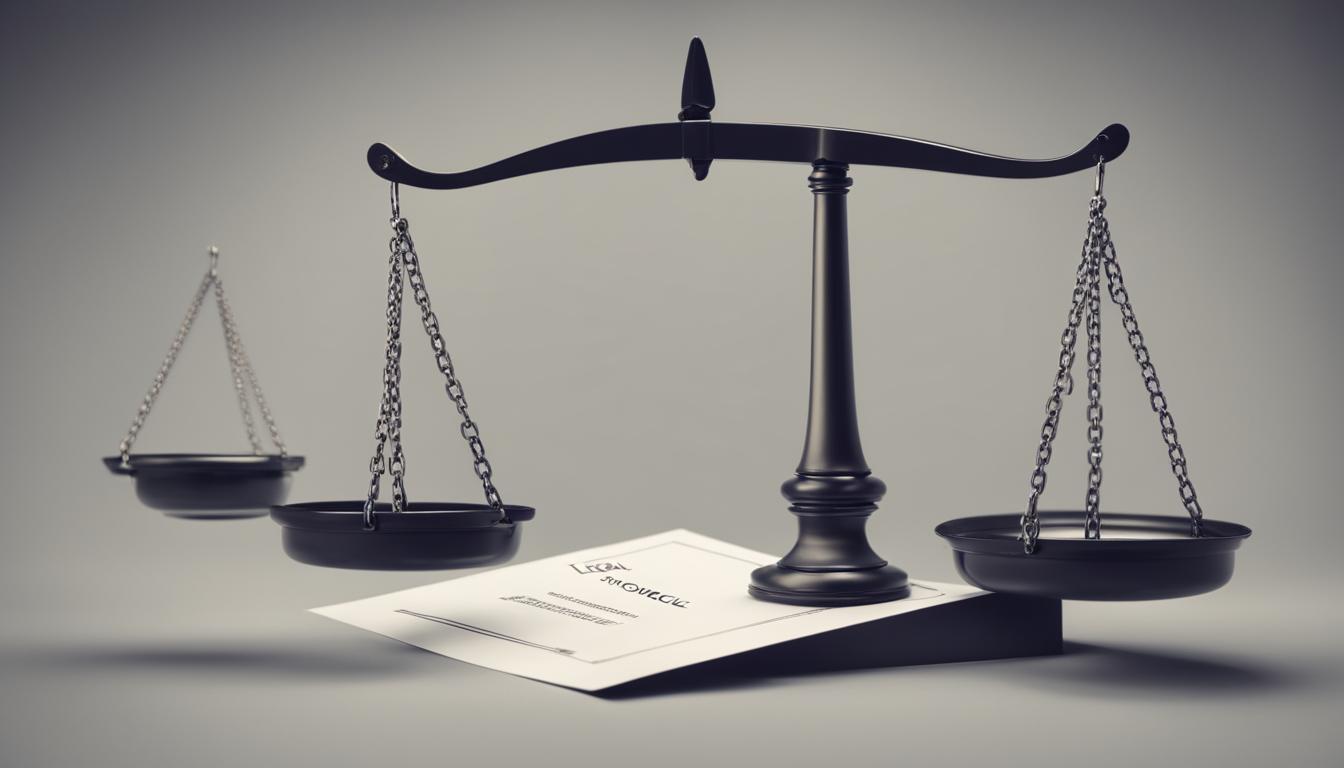When handling false accusations, stay calm and respond thoughtfully. Avoid reacting impulsively or emotionally, as this can worsen the situation. Assess the claim carefully, identify motives, and gather facts before addressing it privately with the accuser if possible. Keep records of conversations and evidence to support your response. Use factual and respectful communication to clarify your position while maintaining your integrity. If you implement these strategies, you’ll discover more ways to protect your reputation effectively.
Key Takeaways
- Stay calm and avoid impulsive reactions to maintain credibility and think clearly.
- Assess the situation carefully by identifying the source and motive behind the false accusation.
- Communicate directly with involved parties and keep detailed records of all interactions and evidence.
- Respond publicly with a factual, composed statement to uphold integrity and clarify the truth.
- Prioritize your mental well-being by seeking support and handling the situation strategically.

False accusations can be incredibly damaging, but how you respond can make a significant difference in protecting your reputation and well-being. When you’re falsely accused, it’s natural to feel a rush of emotions—anger, frustration, fear—but reacting impulsively can worsen the situation. Instead, take a deep breath and stay calm. Your composed response not only demonstrates your integrity but also helps you think clearly and act strategically. Remember, impulsive reactions might be seen as guilt or defensiveness, which can unintentionally support the false claim. Keeping your composure allows you to gather your thoughts and respond in a manner that’s both firm and respectful.
Stay calm and composed to protect your reputation when falsely accused.
It’s essential to assess the situation carefully. Ask yourself who is making the accusation, why they might be doing this, and where the information is coming from. Understanding the context can help you determine the best course of action. Avoid rushing to defend yourself publicly without understanding the full scope of the issue. Instead, consider addressing the matter privately with the accuser if possible. Sometimes misunderstandings or miscommunications are at the root of false accusations, and direct, calm conversations can clear things up more effectively than public confrontations. If the accusation is serious and could damage your reputation, consult with a trusted friend, mentor, or legal professional to guide your next steps.
Document everything related to the incident. Keep records of conversations, messages, or any evidence that supports your innocence. This documentation can be invaluable if you need to defend yourself legally or clarify the situation later. Proper documentation is crucial in these situations to ensure you have a clear record of events and evidence. Avoid retaliating or spreading rumors about the accuser, as this can escalate the conflict and damage your credibility further. Instead, focus on maintaining your integrity and reputation through your actions and words. If the false accusation is made publicly, respond with a composed, factual statement that clarifies your position without resorting to insults or emotional outbursts. This exemplifies strength and honesty, showing others that you handle adversity with dignity.
Finally, prioritize your mental and emotional health. False accusations can take a toll on your well-being, so seek support from friends, family, or mental health professionals. Remember, your response can influence how others perceive you and how the situation unfolds. By remaining calm, factual, and strategic, you position yourself to handle the false accusation effectively and protect your reputation in the long run.
Frequently Asked Questions
How Can I Rebuild Trust After Being Falsely Accused?
You can rebuild trust by being honest and transparent about what happened. Apologize sincerely if needed, and show consistent, trustworthy behavior over time. Communicate openly with those affected, listening to their concerns without becoming defensive. Keep your promises and demonstrate accountability. Patience is key; trust takes time to restore. Focus on actions that prove your integrity, and stay committed to rebuilding your reputation through honesty and respect.
What Legal Options Are Available for False Accusations?
Think of legal options as your safety net when false accusations threaten to pull you under. You can file a defamation lawsuit, seek a restraining order, or report the incident to law enforcement if criminal activity is involved. Consulting a qualified attorney helps you navigate these options effectively. Remember, acting promptly is like patching a hole in the boat before it sinks, protecting your reputation and rights.
How Do False Accusations Impact Mental Health Long-Term?
False accusations can seriously affect your mental health long-term, causing anxiety, depression, and trust issues. You might feel isolated, stressed, or overwhelmed as you try to clear your name. These feelings can linger, impacting your relationships and daily life. It’s important to seek support, whether through therapy or trusted friends, to help process these emotions and rebuild your mental well-being over time.
Can Social Media Amplify the Effects of False Accusations?
Like a storm gathering on the horizon, social media can amplify false accusations, turning whispers into thunderclaps. It spreads rumors at lightning speed, making your reputation feel fragile as glass. The digital crowd’s echo chambers can drown out your voice, intensifying pain and isolation. You might find yourself fighting an uphill battle, trying to clear your name amid a relentless tide of misinformation and judgment, leaving emotional scars that linger long afterward.
What Steps Can Employers Take to Prevent Workplace False Accusations?
You can prevent workplace false accusations by establishing clear policies, providing regular training, and promoting open communication. Encourage employees to report concerns promptly and ensure they understand the consequences of false claims. Implement a fair investigation process that respects confidentiality and gathers facts thoroughly. By fostering a respectful environment and setting expectations, you reduce the risk of false accusations and create a safer, more trustworthy workplace.
Conclusion
Think of false accusations as storms that threaten to capsize your ship. Stay calm, steady your hands, and anchor yourself in truth. Just as a seasoned sailor navigates through turbulent waters, you can steer through the chaos with patience and clarity. Remember, storms pass, and the calm after the storm reveals your true strength. By handling accusations with grace, you chart a course toward peace and integrity, no matter how fierce the tempest may seem.









